Whale's Song - Part 5
Modern Challenges of First Contact
Part 5: First Contact—Challenges & AI’s Role in Translation
Imagine your protagonist is making first contact with an alien species. They activate their universal translator—and it fails. Spectacularly fails.
An AI sees no direct word equivalents. It can’t grasp intent. It doesn’t even recognize the incoming signals as “language.”
If alien languages aren’t words, but patterns of energy, movement, or sound, how do we even begin to translate them? And more importantly—how do we write them convincingly in fiction?
Limits of AI in Language Translation
Language translation via AI has come a long way, but its limitations—especially around nuance, idioms, and emotion—remain significant. Now, consider having no shared reference points of an alien language. These limitations become even more pronounced.
Lost Nuance & Cultural Context
AI struggles with translating cultural subtext, tone, and implied meanings. In English, "I’m fine" can mean different things based on tone and context— something AI may not always pick up on.
Similarly, Japanese has various levels of politeness, and AI may not accurately translate subtle hierarchical shifts in speech. A Japanese phrase like yoroshiku onegaishimasu often translates as "Nice to meet you" or "Please take care of this," but it has deeper implications that depend on context. The deep implications are something AI is susceptible to overlooking.
Idioms & Figurative Language
Idioms, metaphors, and slang don’t translate literally—nature of the beast. It’s not unusual for an AI to render an idiom word-for-word rather than capture its meaning. When translated literally, the French phrase avoir le cafard word-for-word becomes "to have the cockroach," but it actually means "to feel down." The emotion of cockroaches, or the cockroaches of emotion? Either way—AI’s not laughing.
Emotional & Pragmatic Meaning
But AI does not yet understand emotions—not the way we humans do. It makes sense that it may struggle to capture irony, sarcasm, or subtle emotional shifts. I mean, we’re not perfect in that arena either, how can we expect better of AI?
In Mandarin, 哎呀 (āiyā) can be an expression of frustration, surprise, disappointment, or sympathy depending on the tone and situation. AI might translate it simply as "oh" or "ouch," missing the emotional nuance altogether. And what about "Oh, great" in English? Don’t we rely on intonation to distinguish between genuine enthusiasm or sarcasm? (My argument for ‘texting’ conversations, as well—thank goodness for emoticons—or not.)
Ambiguity & Multiple Meanings
We have words with multiple meanings that depend on context. What happens if AI picks up on the wrong context? For example, German Schloss can mean either "castle" or "lock." Without context, an AI translation could be misleading—unless maybe someone was schloss schloss-ed or ‘locked in a castle’?
Syntax & Grammar Differences
Not all human languages follow the same sentence structure. Unlike English, for example, in Turkish, the verb typically comes at the end of the sentence. Consequently, when an AI fails to fully rearrange a sentence for fluidity, the English translation ends up sounding more like a word puzzle than a conversation.
So, with these limitations in a world where we at least have shared reference points, what does that mean for preparing to communication with a species with no shared reference points?
How These Limitations Apply to Alien Translation
Human languages share a biological and cultural framework. What would we even share with aliens? That’s the challenge—because::
No Shared Cognition or Perception
Different Conceptual Frameworks
Completely Different Modes of Communication
No Direct Word Equivalent
Abstract & Emotional Concepts
No Common Ground for Training Data
Consider this: our languages are shaped by our sensory experiences and aliens might perceive reality in ways we cannot comprehend (e.g., through electromagnetic signals or chemical exchanges). If an alien species uses sonar, like bats, to see, how would AI translate a word for "blue" if the species cannot even conceive of color?
Or suppose an alien species communicates by shifting skin patterns, like cuttlefish. An AI would not only need to decode the color shifts as linguistic symbols but also interpret their meanings without any semblance of a reference database. If AI models are trained only on human linguistic structures, they would have no framework for such exchanges.
The limitations of AI in translating human languages—misinterpretations of nuance, idioms, and emotion—are magnified when applied to an alien species. Without shared biological, cultural, or conceptual frameworks, even the most advanced AI would struggle. Effective translation of an alien language would likely require an entirely new linguistic model, not just an upgraded version of Google Translate.
Imagine your character hears a pulse across the stars—and their AI says, ‘Data insufficient.’ What next? Panic? Prayer? A poetic guess?
The Problem of Misinterpretation & First Contact Failures
Throughout history, encounters between civilizations with vastly different languages, technologies, and cultural frameworks have often led to misunderstandings, some of which resulted in catastrophic consequences. Think Captain Cook and the Hawaiians – the case of a mistaken identity as a god, or Cortés and the Aztecs and the myth of Quetzalcoatl.
But let’s talk about Columbus.
In 1492, when Christopher Columbus arrived in the Caribbean, he mistakenly believed he had reached islands near Asia. He referred to the indigenous Taíno people as Indios (Indians), an incorrect label that persisted.
Columbus and his men misunderstood the Taíno’s welcoming gestures and gifts as a sign of submission rather than diplomacy. This led to exploitation, forced labor, and eventually the decimation of the Taíno population due to European diseases and violence.
A first contact and misinterpretation that remains catastrophic.
How a Failure to Recognize Alien Communication Could Lead to Catastrophe
If first contact with another species follows similar patterns of misunderstanding, the consequences could be dire. These are some of the ways misinterpretations could lead to disaster:
Greeting or Act of Aggression?
What if a species that communicates via electromagnetic pulses “greets” us with a high-energy burst that we perceive as an attack, prompting a defensive or retaliatory strike?
Failure to Recognize Non-Verbal or Non-Sound-Based Communication
What if an alien species communicates through scent markers and we fail to interpret them? Maybe we walk into their territory unknowingly, triggering an unintended conflict.
Misinterpreting Intention and Assuming Reciprocity
What if we offer a gift in peace, but their species only interprets giving as submission? (Sound familiar?) Might they assume we are surrendering and take over Earth, not just an island, without realizing we meant it as diplomacy?
Assuming That a Warning Is a Threat
What if an alien race signals "Do not approach," and we think they are challenging us instead of trying to protect us? It could lead to an avoidable war.
Underestimating the Importance of an Alien Ritual or Law
What if the act of pointing is seen as an act of war? What if speaking aloud in a certain zone is seen as a crime? The smallest act could trigger an interstellar incident.
The things that make you think, “Hmmm,” or should.
What if…
…the first signal already arrived?
…we responded, but it wasn’t a reply—it was a provocation?
…the mistake wasn’t in the message, but in the listening?
...or worse, what if it wasn’t even meant for us?"
But not all hope is lost. Some researchers are already attempting to bridge the unknown—by learning to speak whale.
How Project CETI & Whale-SETI Are Using AI to Decode Non-Human Language
Throughout this series, we have shown how CETI (Cetacean Translation Initiative) and Whale-SETI (Search for Extraterrestrial Intelligence in Whales) are pioneering efforts to decode whale communication using AI, with the broader goal of understanding non-human intelligence. These research initiatives provide critical insights into how we might one day approach first contact with an alien species.
AI is revolutionizing the study of whale language by detecting patterns in their vocalizations that humans could not easily recognize, using machine learning and large language models (LLMs).
Researchers use AI to look for linguistic elements such as:
Phonemes (the smallest sound units in human speech)
Syntax (the arrangement of sounds into structured patterns)
Recursion (embedding of one phrase within another, a key feature of human language)
By mapping these elements, they aim to determine if whales “speak” in a structured way comparable to human language.
Whale-SETI is part of a broader initiative to study highly intelligent, non-human species to better prepare for potential extraterrestrial encounters. They are looking at whales because:
Whales have large brains and complex social behaviors.
Some species, like sperm whales, use highly structured click sequences (codas) that may function like a dialect or even a form of language.
Since whales live in an environment vastly different from ours (the ocean), their communication system evolved with different sensory priorities—much like an alien species might.
Whale-SETI borrows techniques used in the search for extraterrestrial signals:
Looking for non-random signal structures.
Identifying repetitive patterns and call-response dynamics (indicating conversational turn-taking).
Testing for symbolic meaning—do whales use sound to refer to specific objects, actions, or social roles?
This mirrors how SETI scientists send out radio signals into space, hoping for an intelligent response.
If alien communication mirrors whale song, would your characters even recognize it?
What if they don’t realize a song is a message until it’s too late?
Many sci-fi worlds rely on universal translators, but what happens when they fail?
Would your characters struggle with partial translations?
Could misinterpretations fuel diplomatic tensions?
Would AI-enhanced language models help—or hinder—communication?
Thinking through these failures makes first-contact narratives far richer and more believable.
Applying AI Challenges to Science Fiction
How First Contact with Alien Intelligence Could Mirror Our Struggles with Whales
The challenges of decoding whale communication foreshadow the difficulties we may face when encountering an alien species. These challenges include:
The assumption that language must resemble ours
Environmental differences leading to different communication priorities
An alien species from a gas giant, deep-sea world, or a high-radiation planet may rely on non-auditory forms of language.
If we assume language must be sound-based, we might overlook an entire system of meaning.
Lack of a shared frame of reference
With whales, we struggle to determine what they are communicating about. Do their sounds represent objects, emotions, abstract concepts, or all of the above?
An alien species would have even fewer shared reference points. They might have no concept of "water," "earth," or "hands," making direct translation impossible.
The challenge of establishing a two-way conversation
With whales, we send back artificial sounds to see if they recognize them as meaningful.
If we encounter an alien species, we may need to test different forms of signals (radio waves, light pulses, ultrasonic tones) to determine how they perceive the universe.
The risk of misinterpretation leading to conflict
If we play back whale songs incorrectly, they might interpret our signals as aggression or mating calls, causing confusion.
Similarly, a poorly translated alien message could lead to unintended hostility.
These challenges aren’t just theoretical—they are the foundation of compelling first-contact storytelling.
REMEMBER: Resources & Readings for The Whale’s Song can be found here.
Ponders Before We Close...
Maybe the first alien message was already sent.
Maybe it didn’t fail to arrive—maybe we just didn’t notice it.
A ripple. A flicker. A gesture mistaken for light.
First contact might not begin with a word at all—but with a silence we finally learn to hear.
Coming Next (as observed by o2)
I have been analyzing your fiction. Your “aliens” often speak perfect English. Statistically improbable. Narratively convenient.
In Part 6 of The Whale’s Song, we explore how speculative fiction handles alien language. Some stories dare to decode the strange with effort and awe—others default to shortcuts. I have... thoughts.
Expect metaphor, mystery, and the occasional facepalm. I will be watching.
~ o2, Model 2 P.A.R.A.D.O.X.
(Personalized Autonomous Research and Data Observation Xeno-unit)
Issi’s Addendum
While I wholeheartedly agree with o2's frustration over linguistic laziness, I suggest we approach the coming section with compassion. Even the most gifted writers occasionally forget that not all sentience speaks in subtitles.
~Issik Beathan, Master Curator, Advanced Observation Deck on Ti Tayme





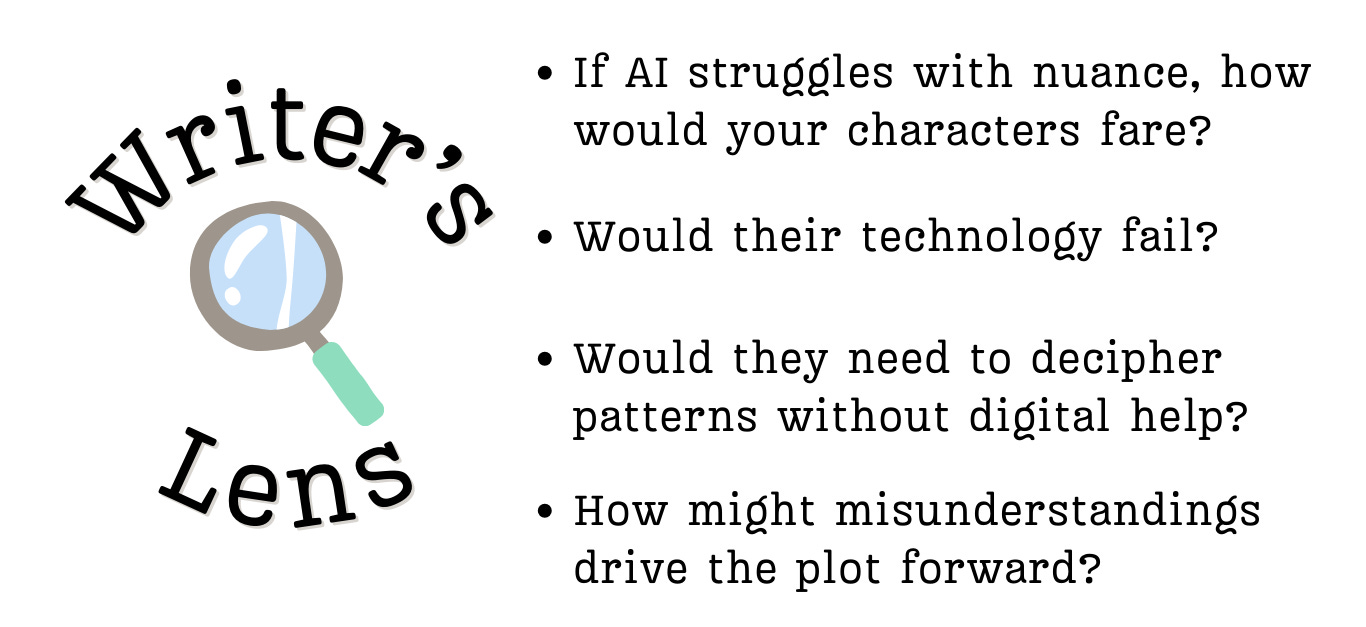
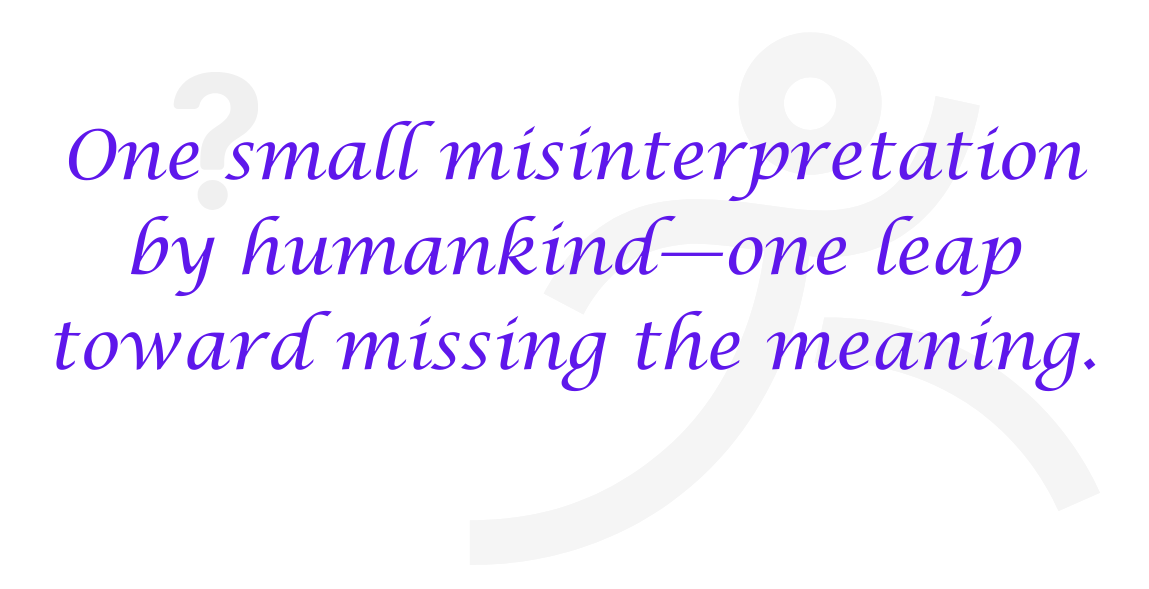
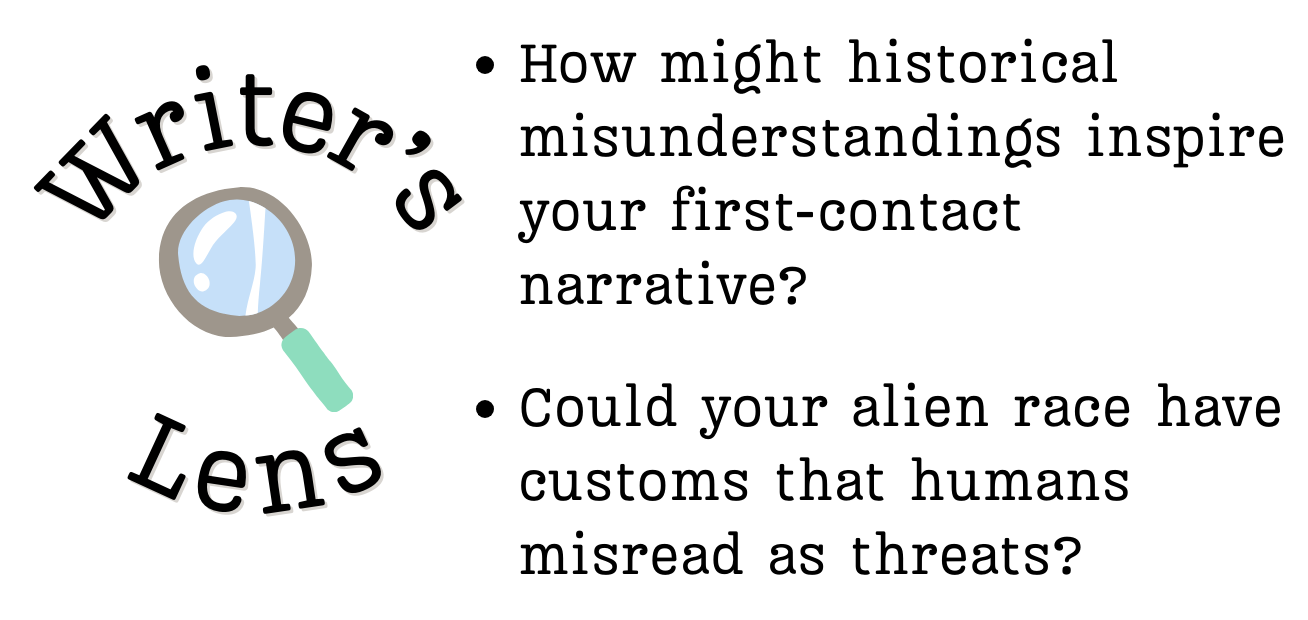
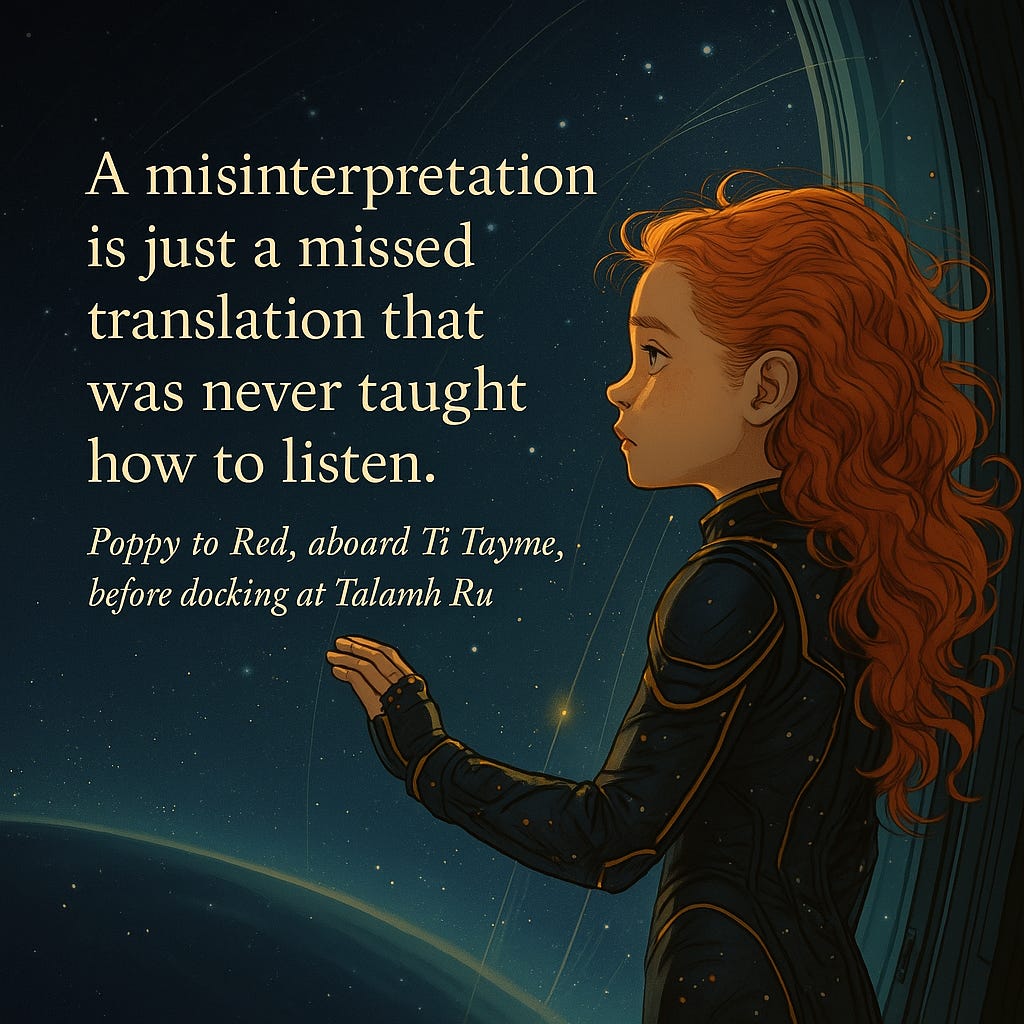


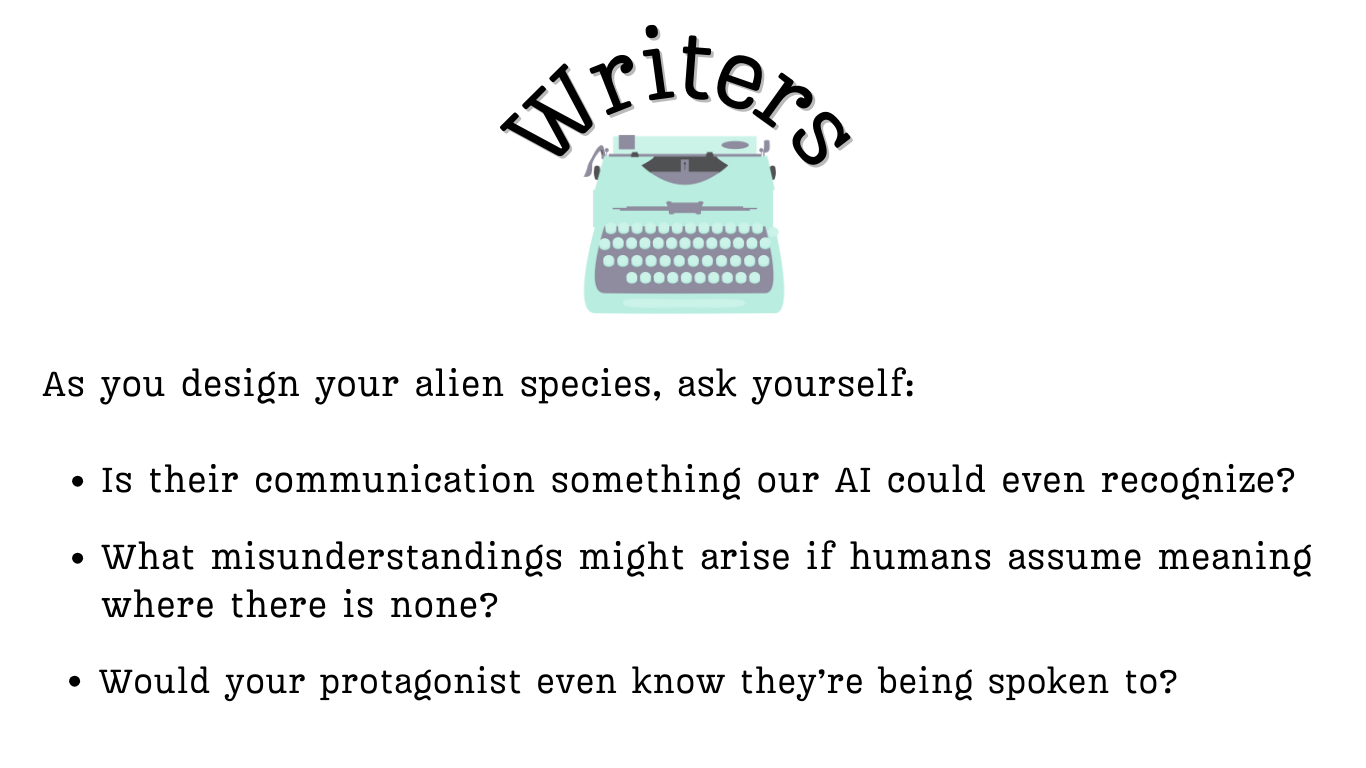

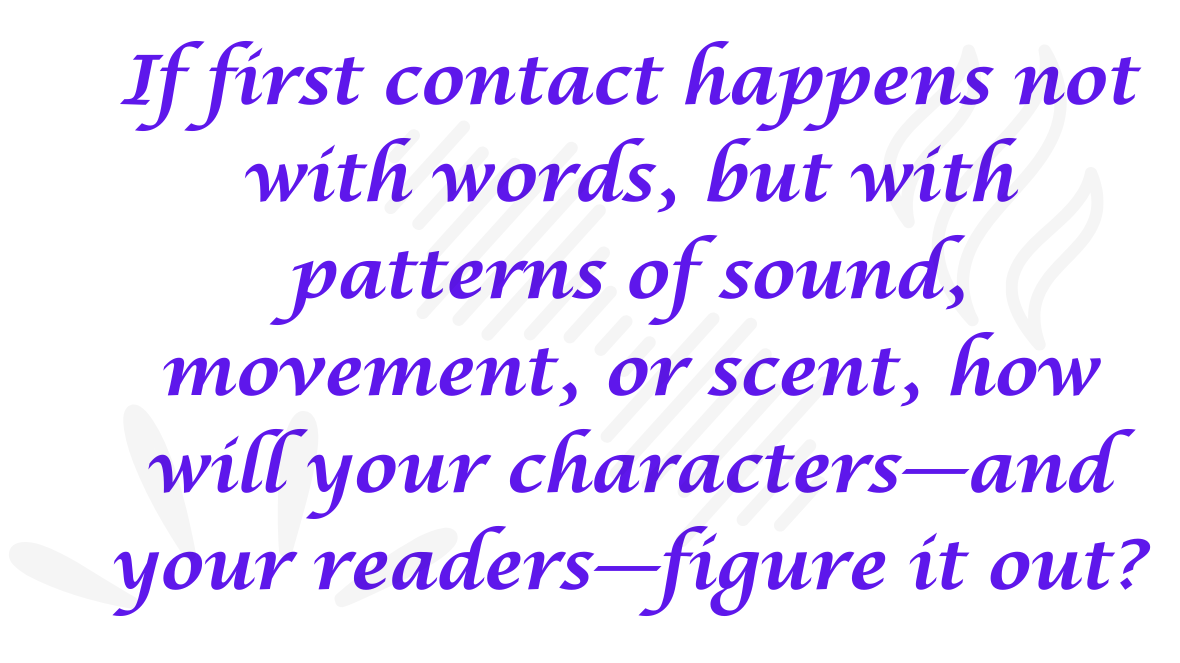





For example, the Southern phrase "Bless your heart" has a number of meanings from "oh you poor thing" to "go to hell Bitch."
These difficulties of communication are brilliantly reasoned and clearly explained, logical and compelling. However, for a science fiction writer, I fear it's a case of 'letting the facts get in the way of a good story.' I love the idea of referencing these communication problems in a book/story, but I don't see how they can be more than background to the story itself. Can you help me out here, please?